Pas de biographie disponible.
Compositeur Musique additionelle Librettiste Parolier Metteur en scène Chorégraphe Producteur création Producteur version
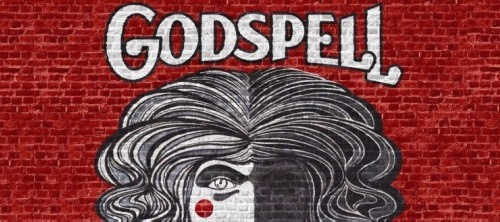
Musical
Musique: Stephen Schwartz • Paroles: Stephen Schwartz • Livret: Production originale: 19 versions mentionnées
Dispo: Résumé Synopsis Génèse Liste chansons
Genèse: The show originated in 1970 as Tebelak's master's thesis project, under the direction of Lawrence Carra, at Carnegie Mellon University in Pittsburgh, Pennsylvania. A version was performed at Carnegie Mellon in 1970, with several of the cast members from the CMU Music Department. Tebelak then directed the show, with much of the student cast, for a two-week, ten performance run at La MaMa Experimental Theatre Club (aka Cafe la Mama), New York City, opening February 24, 1971. It was brought to the attention of producers Edgar Lansbury (brother of Angela Lansbury) and Joseph Beruh by Carnegie alumnus Charles Haid (associate producer), who wanted to open it Off-Broadway. The producers hired Stephen Schwartz, another alumnus of Carnegie Mellon's theater department, to write a new song score. Schwartz's songs incorporated a variety of musical styles, from pop to folk rock, gospel, and vaudeville. One song, "By My Side", written by CMU students Jay Hamburger and Peggy Gordon, was kept from the original score. As with the original score, most of the non-Schwartz lyrics were from the Episcopal Hymnal (see also the 1971 Off-Broadway run).
Résumé: Godspell presents the gospel of St. Matthew updated to New York City of the late '60s/early '70s, featuring Jesus Christ as a wandering minstrel dressed like a circus clown.
Création: 17/5/1971 - Cherry Lane Theatre (Broadway (Off)) - 2124 représ.
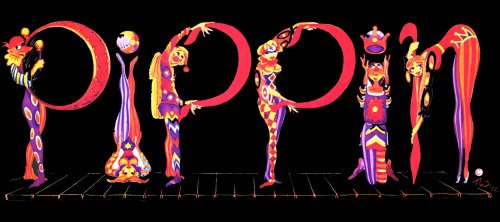
Musical
Musique: Stephen Schwartz • Paroles: Stephen Schwartz • Livret: Roger O. Hirson • Production originale: 9 versions mentionnées
Dispo: Résumé Synopsis Commentaire Liste chansons
Genèse:
Résumé: The man 'born to be King' or rather Emperor, has a problem - boredom. Pippin, eldest son of Charlemagne, tired of books, war, love and politics, in his quest for happiness finally finds fulfilment only in peaceful domesticity. This brilliant score is set in the dazzling court of the 8th Century Holy Roman Emperor. Once upon a time, the young prince Pippin longed to discover the secret of true happiness and fulfilment. He sought it in the glories of the battlefield, the temptations of the flesh and the intrigues of political power (after disposing of his father King Charlemagne the Great). In the end, he found it in the simple pleasures of home and family.
Création: 23/10/1972 - Imperial Theatre (Broadway) - représ.
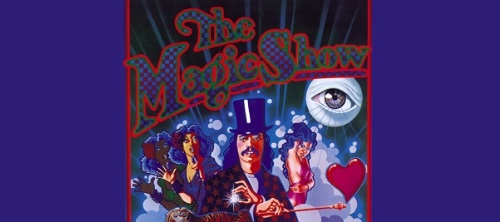
Musical
Musique: Stephen Schwartz • Paroles: Stephen Schwartz • Livret: Bob Randall • Production originale: 1 version mentionnée
Dispo: Résumé Synopsis Liste chansons
Genèse:
Résumé: The setting for the show is a seedy nightclub, the Top Hat, where an aging alcoholic magician, "Feldman the Magnificent," chews the scenery in his overly grand performance. Manny, the Top Hat owner, wants to replace him and brings in Doug. Doug is very unconventional and has an assistant named Cal. Cal is in love with Doug, but he is focused on advancing his career. Donna and Dina are the rock act in the club. One of them dates the nephew of a big agent named Goldfarb. Goldfarb is coming to the club to check out Donna and Dina's act, and everyone is excited. Meanwhile, Doug pays little attention to Cal and decides that he needs a "beautiful assistant". Cal is hurt, as Doug conjures up the beautiful Charmin. Donna and Dina get jealous, and along with Feldman, plot to expose the secrets to Doug's tricks during the show. Doug finally realizes he loves Cal, and gets to her before she leaves. Charmin is sent back to wherever she came from, and all ends up well.
Création: 28/5/1974 - Cort Theatre (Broadway) - 1920 représ.

Musical
Musique: Stephen Schwartz • Paroles: Stephen Schwartz • Livret: Joseph Stein • Production originale: 4 versions mentionnées
Dispo: Résumé Synopsis Génèse Isnpiration Liste chansons
In 1976, 28-year-old Stephen Schwartz seemed to be the most successful Broadway songwriter of his generation, with three musicals playing in New York simultaneously: Godspell (which transferred to Broadway following a lengthy off-Broadway run during the year), Pippin, and The Magic Show. Schwartz's next musical was thus highly anticipated. It was The Baker's Wife, based on the French novel La Femme du Boulanger by Marcel Pagnol and Jean Giono, and the classic 1938 film directed by Pagnol, about a romantic triangle involving a baker, his wife, and a shepherd. Originally, the production starred Topol (known for the London and film versions of Fiddler on the Roof), but he was eventually replaced, surprisingly, by the character actor Paul Sorvino, a newcomer to musical theater. Opposite him was up-and-coming Juilliard-trained actress/singer Patti LuPone, while Kurt Peterson ably played the shepherd. The show opened its pre-Broadway tour in Los Angeles on May 11, 1976, but something went wrong on the way to New York, and The Baker's Wife never got there, closing in Washington, D.C.
Genèse: The musical theater rights of the Marcel Pagnol's 1938 film were originally optioned in 1952 by producers Cy Feuer and Ernest Martin. Composer Frank Loesser and librettist Abe Burrows, who had worked with Feuer and Martin on Guys and Dolls and How to Succeed in Business Without Really Trying were attached as authors. The production to star Bert Lahr, however, never materialized. Nearly a decade later Zero Mostel was named to take the lead. By 1976 the rights had devolved to producer David Merrick. The production by Stephen Schwartz and Joseph Stein toured the United States for six months in 1976, undergoing major retoolings along the way. It played the Dorothy Chandler Pavilion in Los Angeles in May 1976 and also the Kennedy Center, Washington, DC. (in November 1976). Topol as the baker Amiable, was replaced by Paul Sorvino during the last 2 weeks of the Kennedy Center run, and his wife Geneviève was played by Carole Demas who was eventually replaced by Patti LuPone. The production never reached Broadway, the authors having pulled out of the production in the try-out process. After hearing the song "Meadowlark" countless times in auditions, director Trevor Nunn persuaded the authors to mount a London production. The Baker's Wife, starring Alun Armstrong and Sharon Lee-Hill, opened in the West End at the Phoenix Theatre on November 27, 1989 and closed on January 6, 1990, after 56 performances. This production, too, was ill-fated: though reviews were strong and audience reaction positive, the production was steadily losing money. According to Carol De Giere, "While reviewers offered praise, audiences were small and the show closed after only 56 performances. Schwartz explains,'The major thing that was wrong was that it was just too long'...Nunn comments 'Every performance there had a standing ovation, which is not at all normal in the English provinces." Bowing to financial reality, the show closed prematurely, but received the Laurence Olivier Award nomination for Musical of the Year. The creative team reunited for the 1997 production at The Round Barn Theatre at Amish Acres in Nappanee, Indiana, that was directed by Scott Schwartz, and the production at the Goodspeed Opera House, Norma Terris Theatre, Chester, Connecticut in November 2002. The Papermill Playhouse, Milburn, New Jersey, produced the show from April 13 - May 15, 2005. The director was Gordon Greenberg, with choreography by Christopher Gattelli and the cast that starred Alice Ripley as Genevieve, Max von Essen as Dominique, Lenny Wolpe as Amiable, Gay Marshall (Denise) and Richard Pruitt (Claude). The Papermill included the reworking of the relationship between the characters of Geneviève and Dominique as well as new lyrics for "Proud Lady". An Australian premiere of the show, directed by Prof. Peter Fitzpatrick, had a Melbourne production in late 2007. The York Theatre, New York, presented a staged concert October 26–28, 2007. The award winning Union Theatre produced The Baker's Wife in Sept/Oct 2011 starring Lisa Stokke and Michael Matus. It was staged and directed by Michael Strassen and received rave reviews prompting reviewer Mark Shenton to write 'Michael Strassen reclaims The Baker's Wife forever as the affecting miniature masterpiece that has always been lurking inside it' (see website reviews/Union Award)
Résumé: Set in 1935 in a small French village, 'The Baker's Wife' explores the nature of marriage and the unpredictable excitement of the knight in shining armour. If bread represents life then the baker's new young wife represents danger to the people of this community. We discover stories told when you were a child can often backfire horribly in adult life.
Création: 11/5/1976 - Dorothy Chandler Pavilion (Los Angeles) - représ.

Musical
Musique: Charles Strouse • Paroles: Stephen Schwartz • Livret: Joseph Stein • Production originale: 5 versions mentionnées
Dispo: Résumé Synopsis Génèse Liste chansons
Genèse: The Broadway production opened on August 21, 1986 at the Mark Hellinger Theatre with little advance sale and to mostly indifferent reviews, and it closed after only four performances (and 18 previews). Directed by Gene Saks and choreographed by Ron Field, the cast included Teresa Stratas as Rebecca Hershkowitz, Larry Kert as Nathan Hershkowitz, Lonny Price as Ben, Judy Kuhn as Bella Cohen, Dick Latessa as Avram Cohen, Marcia Lewis as Rachel Halpern, and Terrence Mann as Saul, a union organizer. Despite its failure, it garnered a good deal of attention during the awards season. In 1991, Sony released a studio recording of the score. It featured most of the original cast joined by Julia Migenes replacing Stratas. Revised versions In 1991 the creators reunited to present a dramatically rewritten and severely streamlined production at The American Jewish Theatre, New York City, directed by Richard Sabellico. The version had 9 actors playing all of the roles, and a reduced set, with two pushcarts on stage and imaginary windows, with the actors describing the exterior activity. The young immigrant mother has a best friend of almost equal importance, and the story is now told by David, the heroine's young son. The Colony Theatre Company, Los Angeles, California presented Rags in 1993. They reworked the show again, staging it first at Florida's Coconut Grove Playhouse (February 1999) and then the Paper Mill Playhouse in New Jersey in November 1999. The revised version cut the cast to 15, from the original Broadway cast of 30. According to Strouse, "We tried to do too much.And now it's tightened, more focused. People got lost in it...The diffuse, scattered story now centers on Rebecca Hershkowitz, a young immigrant mother who escapes to the Lower East Side after a pogrom, and her love affair with Saul, an American labor organizer trying to unionize the sweatshop where she works...The [original] score was influenced by Middle Eastern, Irish, Scottish, English folk, American honky-tonk, obviously jazz and ragtime and klezmer -- even Greek music of that day, and Broadway, too...It is now 'more impressionistic'." In 2006, Schwartz, Stein and Strouse collaborated on the World AIDS Day Concert version of the musical, celebrating the 20th Anniversary of the show's Broadway opening. The concert was at Times Square's Nokia Theatre and featured Carolee Carmello, Gregg Edelman, Eden Espinosa, Lainie Kazan and Michael Rupert.
Résumé: With great passion and humor, the story is told of Rebecca, a naive Russian immigrant arriving at Ellis Island with her young son, and their struggle to make a life for themselves in the New World. She goes to work in a sweatshop while searching for her husband who has preceded them to America. When they are finally reunited she discovers that his assimilation is not entirely for the best. His desire to change their name and strip away their ethnic culture so as to fit in with his cronies distresses Rebecca, whose gradual enlightenment leads her into union activities against the very men her husband so hopes to impress. Subplots concern an elderly immigrant, his daughter, and their respective romances, one of which ends tragically. This sweeping saga of awakenings and disappointments, of greed and power, of strength and love is as deeply moving and inspirational a musical as you could hope to present.
Création: 21/8/1986 - Mark Hellinger Theatre (Broadway) - représ.
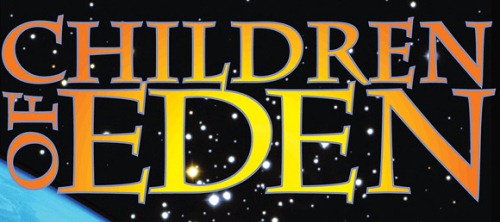
Musical
Musique: Stephen Schwartz • Paroles: Stephen Schwartz • Livret: John Caird • Production originale: 4 versions mentionnées
Dispo: Résumé Synopsis Génèse Liste chansons
Genèse: Children of Eden was originally written in 1986 as Family Tree for a production by Youth Sing Praise, a religious-oriented high school theatre camp at the National Shrine of Our Lady of the Snows in Belleville, Illinois. Stephen Schwartz adapted the script and music of Family Tree into a full-length musical, giving it the title it uses today. The original cast production of Children of Eden was developed as a Royal Shakespeare Company (RSC) workshop, directed by John Caird, and starring Ken Page as Father, Richard Lloyd-King as Snake, Martin Smith as Adam, Shezwae Powell as Eve, Adrian Beaumont as Cain, Kevin Colson as Noah, Earlene Bentley as Mama Noah, Frances Ruffelle as Yonah, Anthony Barclay as Japeth, Craig Pinder as Shem, Ray Shell as Ham, Hiromi Itoh as Aysha and Ruthie Henshall as Aphra. After the RSC's budget was cut, it opened at the Prince Edward Theatre in London's West End on January 8, 1991. The show closed on April 6, 1991 to poor reviews and after the Persian Gulf War put a damper on tourism worldwide. The show's poor reviews and quick closing meant that any hope of a Broadway transfer was abandoned. The original London cast album was released on LP and CD, but quickly went out of print. The CD release was marred by manufacturing defects that caused most of the discs to "bronze", becoming unplayable. Consequently, a playable copy of the disc is highly prized by musical theatre collectors. Schwartz believes the show has not played on Broadway because of the expense required to produce it in an Actor's Equity house, due to the cast of characters. There is an extremely rare concept recording of the show that exists. The recording features Stephen Schwartz himself playing the piano. The recording was made before the Papermill Playhouse production in an effort to review the rewrites and revisions. The recording was made available only for a limited time on Stephen Schwartz's website via RealAudio streaming. The recording is considered to be the rarest version of the show that exists. Only a handful of people possess CD or digital copies of it, including Stephen Schwartz himself and Michael Kohl. Throughout the 1990s, the show received numerous productions at both the amateur and professional levels; it was also reworked and edited, with songs and scenes being added and cut. In 1997, a major production was mounted at the Paper Mill Playhouse in Millburn, New Jersey, featuring Stephanie Mills. A cast recording of this production was produced by Schwartz himself. This revised version, commonly known as the "American version" or "Paper Mill version", is substantially what is currently licensed for production in the United States. The New York City premiere of the piece was as the inaugural World AIDS Day Concert presented by Jamie McGonnigal and Kate Shindle. The concert featured Julia Murney, Norm Lewis, Darius de Haas, and Jai Rodriguez and raised funds for The National AIDS Fund. The show's publisher, Music Theater International, reports that Children of Eden is one of its top 20 most frequently licensed properties, which is very unusual for a show that has never had a Broadway or Off-Broadway run. Its popularity is partly due to its ability to accommodate a large or small cast; its universal themes of family, love, greed, anger, and others; and its religious material, which make it a favorite for churches, synagogues, and post-secondary schools. The most recent production of Children of Eden was played at NIDA (St. Andrews), Sydney, Australia, on the second and third weekends of March, 2011. A world premiere of the symphonic version will run in Kansas City from July 15 to 24, 2011, accompanied by a 55-piece orchestra.
Résumé: Freely based on the story of Genesis, CHILDREN OF EDEN is a frank, heartfelt and often humorous examination of the age-old conflict between parents and children. Adam, Eve, Noah and the "Father" who created them deal with the headstrong, cataclysmic actions of their respective children. The show ultimately delivers a bittersweet but inspiring message: that "the hardest part of love... is letting go."
Création: 8/1/1991 - Prince Edward Theatre (Londres) - représ.
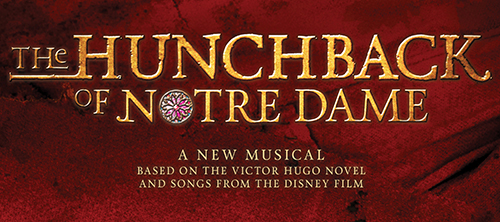
Musical
Musique: Alan Menken • Paroles: Stephen Schwartz • Livret: James Lapine • Production originale: 4 versions mentionnées
Dispo: Synopsis Liste chansons
The musical premiered in 1999 in Berlin, Germany as Der Glöckner von Notre Dame. It was produced by Walt Disney Theatrical, the company's first musical to premiere outside the U.S. It ran for three years, becoming one of Berlin's longest-running musicals. The English-language musical The Hunchback of Notre Dame opened at La Jolla Playhouse in San Diego, California on October 26, 2014 and ran until December 14, 2014. Subsequently, the show went on to open on March 15, 2015 at the Paper Mill Playhouse in Millburn, New Jersey. The show closed on April 5, 2015, after it was announced that the show would not move to Broadway.
Genèse:
Résumé:
Création: 5/6/1999 - Theater am Potsdamer Platz (Berlin) - représ.

Musical
Musique: Stephen Schwartz • Paroles: Michael Kunze • Stephen Schwartz • Livret: Christian Struppeck • Production originale: 1 version mentionnée
Dispo: Synopsis Génèse
"Schikaneder – the turbulent love story behind the Magic Flute" is a romantic musical comedy about one of the most glittering theater couples of the 18th century - Emanuel and Eleonore Schikaneder. Their initially young, carefree love develops into a mature partnership with highs and lows, combined with jealousy, separation and rapprochement. The two of them - as they did in real life! - hugely influenced the world of theater in Vienna. Without them, one of the greatest works of operatic literature – Mozart's Magic Flute – would never have come about.
Genèse: Team from Broadway and the West End The musical celebrated its world premiere at the Raimund Theater on 30 September 2016 and sets the Viennese musical scene bubbling. True greats of the musical business worked on the project: Winner of three Oscars, three Grammys and a Golden Globe, Stephen Schwartz (Wicked, The Hunchback of Notre Dame, Pocahontas, Godspell) co-wrote the music and lyrics, while Michael Kunze provide the German translation. Musical director Christian Struppeck wrote the book. Three-times Tony prize winner Sir Trevor Nunn directs the world premiere.
Résumé:
Création: 30/9/2016 - Raimund Theater (Vienne) - représ.
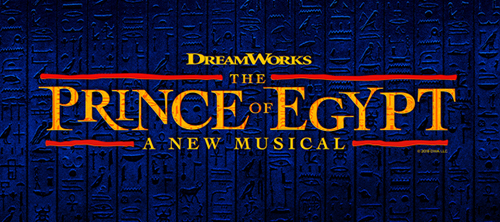
Musical
Musique: Stephen Schwartz • Paroles: Stephen Schwartz • Livret: Philip LaZebnik • Production originale: 1 version mentionnée
Dispo: Résumé Génèse Liste chansons
A new stage musical based on the DreamWorks animated motion picture The Prince of Egypt.
Genèse: The Prince of Egypt made its debut at TheatreWorks Silicon Valley, at the Mountain View Center for the Performing Arts in Mountain View, California on October 6, 2017, choreographed by Sean Cheesman and directed by Scott Schwartz. The musical had its international premiere in a Danish production on April 6, 2018 at the Fredericia Teater in Fredericia, then followed by a Summer season at the Royal Danish Theatre in Copenhagen 2019. Fredericia Theater believed that for a larger, older and more visited stage, something new and grander was more fitting, and so they reinvented the visual design and created new dance cheographies. The song "The Plagues" omit the lyrics pertaining to Moses and Rameses' relationship. All versions of the musical since the TheatreWorks premiere made additional omissions, including the removal of the character of the High Priest Huy and his and High Priest Hotep's song, "Playing with the Big Boys", whose melody and lyrics mentioning the names of the Ancient Egyptian gods remain, but are included in the scene of the Ten Plagues instead. The Tuacahn Amphitheatre in Ivins, Utah also staged a production of the musical from July 13 through October 20, 2018. A significantly revised new version opens at the Dominion Theatre in London's West End for a limited 32-week engagement from 5 February to 12 September 2020, directed by Scott Schwartz and choreographed by Sean Cheesman. [6] The production features new costume, set, projection, illusion and sound designs as well as a world premiere song. A cast of 38 is headed by Luke Brady (Moses), Liam Tamne (Ramses), Christine Allado (Tzipporah), Alexia Khadime (Miriam), Joe Dixon (Seti), Debbie Kurup (Queen Tuya), Gary Wilmot (Jethro),Mercedesz Csampai (Yocheved), Adam Pearce (Hotep), Tanisha Spring (Nefertari) and Silas Wyatt-Barke (Aaron).
Résumé: The Prince of Egypt retells the biblical story of Moses, who grows from a baby set adrift on the Nile by his mother Yocheved, to an Egyptian prince, and finally into the savior of the Hebrews under the oppression of his brother, Ramses.
Création: 6/10/2017 - Mountain View Center for the Performing Arts (Mountain View) - représ.

Version 1
Baker's wife (1985-03-Church of the Heavenly Rest-Off Off Broadway)
Type de série: RevivalThéâtre: Church of the Heavenly Rest (Broadway (Off-Off) - Etats-Unis) Durée : Nombre : 20 représentationsPremière Preview : Sunday 24 March 1985Première : Sunday 24 March 1985Dernière : InconnuMise en scène : Stephen Schwartz • Chorégraphie : Producteur : Avec : Aimable ... Jack Weston / Geneviève ... Joyce Leigh Bowden / Dominic ... Kevin Gray / Denise ... Judith Lander / Performer ... Charles Goff, Hal Robinson, Gabriel Barre, Florence Anglin, Bert Fraser, Paul O'Keefe